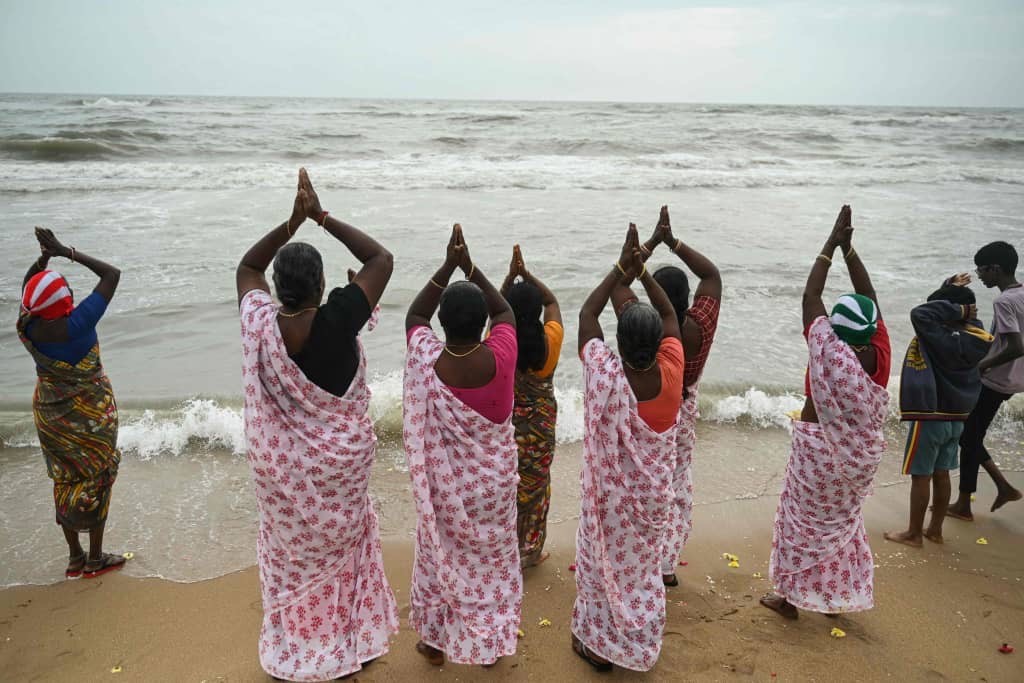Tempers flared on Friday afternoon when Windhoek City Police officers swooped down on unsuspecting fruit and vegetable vendors outside a Windhoek supermarket.
The vendors operating in the parking area across the road from the supermarket, claim the police confiscated the wares of those selling in front of the shop.
The designated parking area stalls are often abandoned, they say.
The involved vendors were on Friday instructed to follow police officers to Windhoek Central Police Station where they would be fined for vending in an undesignated area.
The fines range from N$500 to N$2 000, the vendors claim.
Upon payment their wares may be returned to them, but perishables, like tomatoes, are “disposed of”, they say.
An officer says the police are only enforcing city by-laws and protecting the vendors from being run over as they cross the busy street.
Vendor Ester Andreas says she supports 10 children and three grandchildren.
She claims few customers come to the parking area stalls, with most of them jumping into taxis without crossing the road.
“There are no sheds, and our vegetables quickly spoil in the hot sun. This further puts off prospective customers, resulting in big losses for us,” she says.
Andreas claims police officers eat some of the fruit and vegetables they confiscate.
She says some officers also use abusive language when speaking to them.
“One woman police officer threatened to shoot me, and when me and two colleagues went to report the case at Windhoek Central Police Station, it was swept under the carpet,” she says.
Another vendor, Maria Domingo, says the confiscation is an everyday occurrence.
She says if the police confiscate their goods, vendors are forced to get vegetables on credit from suppliers.
“I lost N$3 800 worth of goods I had taken on credit, and the supplier still demanded payment for them or he would blacklist me,” she says.
She says she suspects some of the vegetables are fed to detainees.
Domingo says the bays have the further inconvenience of the nearby toilets being closed for long periods of time, with no access to water, which is unhygienic.
“We have to bring water from home, or buy some,” the single mother of four says.
Domingo appeals for permits to be mobile instead of being confined to the provided bays.
Rosalia Tjikwanda says she will not vote in the upcoming elections, since the government does not protect vendors.
“When elections come, they promise us a lot of things, but after elections they often turn against us,” she says.
Viwangu Tamale says they are forced to sell food items in a dirty area where the homeless relieve themselves at night.
The municipality does not clean this, she says.
Vending is Tamale’s only means of survival.
“Last week our shack in One Nation at Okuryangava was destroyed in a fire, and we are sleeping in the open. I am hastling to rebuild,” she says.
Executive director of the Dynamic Informal Traders Association Tangeni Shindondola says the police must stop their violence, harassment, evictions and threats against vendors.
She does, however, acknowledge that they are simply “doing their job enforcing a one-sided law”.
“No one is listening to their plight and why they are on the street,” Shindondola says.
She criticises the police for not registering and accounting for the vendors’ goods they confiscate.
“This boils down to the abuse of power and bullying of the vendors by the police,” she says.
Shindondola urges the government to ratify and domesticate global and regional legal frameworks related to the social protection of workers in the informal economy, including the International Labour Organisation Convention 102 on social security.
The City of Windhoek did not respond to a request for comment at the time of going to print.
– email: matthew@namibian.com.na
Stay informed with The Namibian – your source for credible journalism. Get in-depth reporting and opinions for
only N$85 a month. Invest in journalism, invest in democracy –
Subscribe Now!







